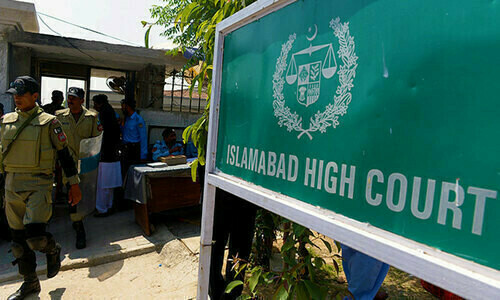THE anti-government protests on Constitution Avenue may not be over, but they do appear to have morphed from sit-ins to a travelling roadshow of sorts, with Imran Khan and Tahirul Qadri both drawing large crowds in various cities of the country.
So perhaps an interim stock-taking of a kind is in order: what exactly have the protests achieved so far? The PML-N government is certainly weaker, the army politically stronger, the media has been thoroughly politicised, and the profiles of Imran Khan and Tahirul Qadri have increased.
But there are several other macro and micro issues too. At the systemic level, politics as a whole and politicians in general stand demonised once again and increasingly portrayed as the root of all evil.
This can be seen in the agitation against the so-called VIP culture and virtually every state failure being pinned on them.
To be sure, the political class as a whole and many politicians within it have many failings. Yet, there is a sense that instead of holding the political class’s feet to the fire, the flames of the ongoing protests may have engulfed the democratic system — with the obvious winners being the anti-democratic forces in the country. That this has occurred time and again over this country’s tawdry political history only strengthens the suspicion that the winners are not accidental.
Yet, there are several other immediate issues too. Mr Khan and Mr Qadri started out with a coherent and narrow set of demands — but they escalated matters by adding on the ouster of Prime Minister Nawaz Sharif to a set of otherwise mostly reasonable demands.
The government necessarily baulked at the idea of sidelining its own leader, after which the PTI and PAT have sprayed an increasingly incoherent and inconsistent set of allegations at the government. On some days, the government is put to the sword for being too soft on India and not strong enough on Kashmir, on other days it is some localised misstep.
Most of the time now, it appears the PTI and PAT are simply glancing at the news of the day to come up with a new line of attack against the government.
While the focus is on the government’s foibles, it is really many of the missteps of the protesters that have limited their impact, from the ill-advised storming of Islamabad’s red zone to the insider revelations of Javed Hashmi.
Yet, as ever, the onus must ultimately be on the government to give the country an opportunity to get past this destabilising phase in politics.
Consider that even the appointment of a permanent chief election commissioner continues to prove elusive. If that is to be tied to electoral reforms, as the government is arguing, then where are those reforms and when will they be presented? Governing involves dealing with crises too, not just pretending they no longer exist.
Published in Dawn, October 16th, 2014











































